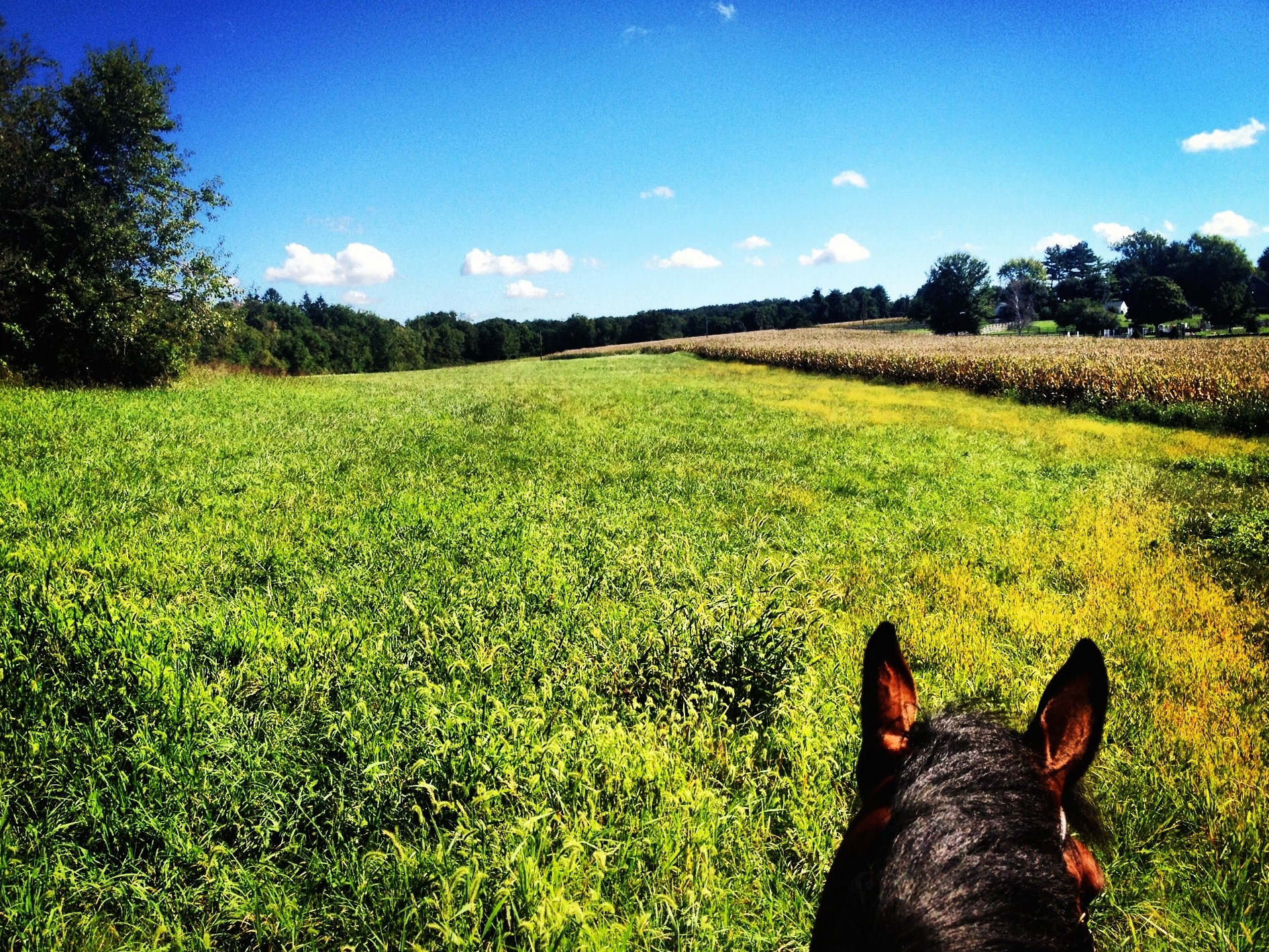Two summers ago, I gave my horse a pat as we cantered away from the final brush fence of a hunter derby course in Kentucky. I had been traveling the East Coast, showing all season with my 3’6” amateur hunter, and Kentucky was our last stop before taking a break and resting up before spending the winter down in Wellington, Florida. Or at least that’s what I thought. While I was happy with my round in the derby and gave my horse an extra pat on the neck before exiting the ring, I never would have thought that hot summer day in 2012 was going to be my last time in the show ring with my beloved partner of four years.
I purchased my bay gelding hunter when he was five turning six, and incapable of jumping two consecutive jumps without letting out a huge buck. It was frustrating at times, but we tackled each day with a fresh perspective and developed a bond while learning together. Before I knew it, we went from missing lead changes in the children’s hunters to receiving top ribbons in major USHJA International Hunter Derby classes.
During my first few years as an amateur, I was lucky enough to travel the circuit with my amateur hunter. My first two years of college involved lots of traveling back and forth from Philadelphia, PA to Wellington on the weekends (hello fellow US Airways Frequent Fliers.)
Diagnosing a Mystery
It was fun while it lasted, but my course load became increasingly demanding once the winter circuit ended, and I started spending less time in the saddle and more time inside my college’s library. At the same time, my horse was battling a mysterious mix of health issues ranging from glaring neurological symptoms to a bum hind leg. He was closely monitored by some of the top vets on the East Coast and I was confident he’d make a full recovery in a matter of weeks. However, months later, after endless blood tests, therapy machines and supplements, he remained on stall rest for the winter inside a barn that was covered in a two-foot blanket of snow.
The glistening white snow turned dirty brown and eventually started to melt come March. The horses in the barn were finally able to enjoy some time out in the paddocks and cover themselves in cool mud, yet my horse had to watch from his corner stall window. While I wasn’t experiencing his medical issues, I regularly found myself sympathizing with him as I stared out the library windows and wished I was in sunny Wellington.
We keep trying to diagnose and fix my horse’s lameness. I was halfway through taking an accounting exam in March when my phone buzzed in my pocket with a highly anticipated phone call from Penn Vet’s New Bolton Center. My pen went flying across the table and I exited the room in a flash, bypassing the confused professor at the front of the room. I didn’t quite finish answering all of the questions on the test, but I learned that my horse successfully came out of anesthesia from an invasive diagnostic test and he was ready to return home. At the end of the day that’s all that really mattered.
The Work/Horse Balance
I had 20 minutes before my next class and figured it was just enough time to make phone calls to my trainer and veterinarian and update them on what the New Bolton surgeon told me. Suffice it to say I learned how to efficiently budget my time this past semester. I figured out how to manage regular course work, extra-curricular clubs, working part-time back at home and caring for an injured horse. Yet after the grueling winter months and without a serviceable horse, it was still a challenge to find time to get back in the saddle, much less visit a horse show simply to watch.
Although I’ve gone from riding six days a week to now only once a month, I’ll still drive 50 miles out to the barn with a bag full of carrots for my horse while he’s recuperating. Instead of letting myself get defeated about the present situation, I’ve redirected my focus on ensuring he gets the best care while I peruse my future academic career and job opportunities. I’m busy working at a law office this summer, and weeks at a time can pass by without seeing my beloved horse. But, I always can count on hearing his deep, distinct whinny whenever I step foot in the barn aisle. What’s next? Your guess is as good as mine. But I’m grateful that despite everything, I still see my horse’s friendly face searching for me when I turn the corner for his stall.


Do not let weeks go by without seeing your beloved horse. Move heaven and earth to see him frequently. Let work, responsibilities, EVERYTHING come a distant second to spending time with him. Let other people just deal with it. When one day you no longer round the corner to see his face looking for you, all the consequences of putting time with him ahead of everything else will seem trivial. You will never regret anything you had to give up to spend more time with him.